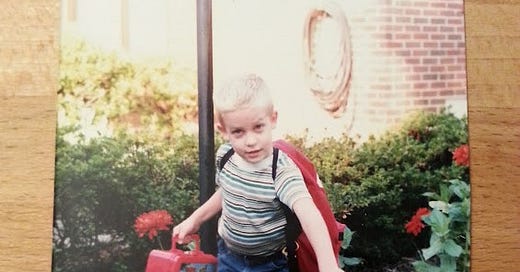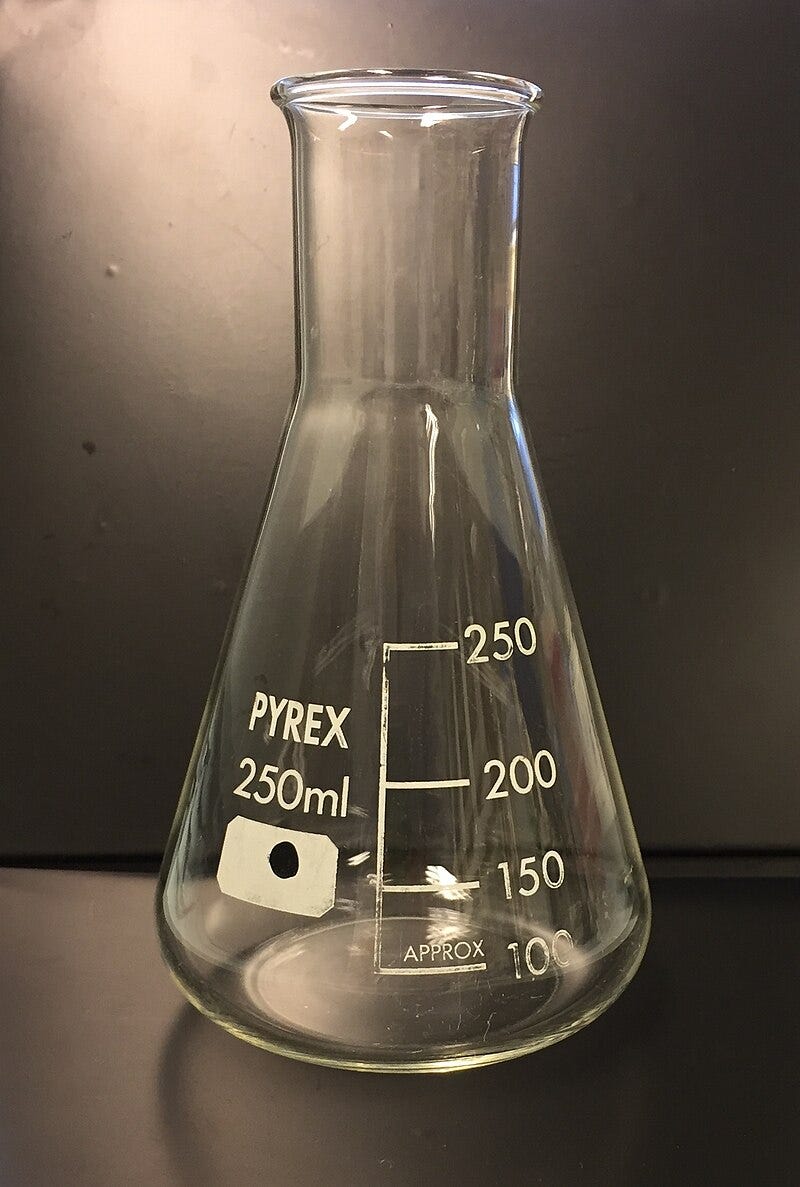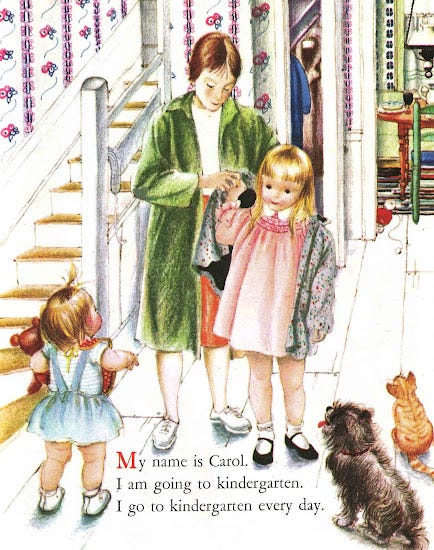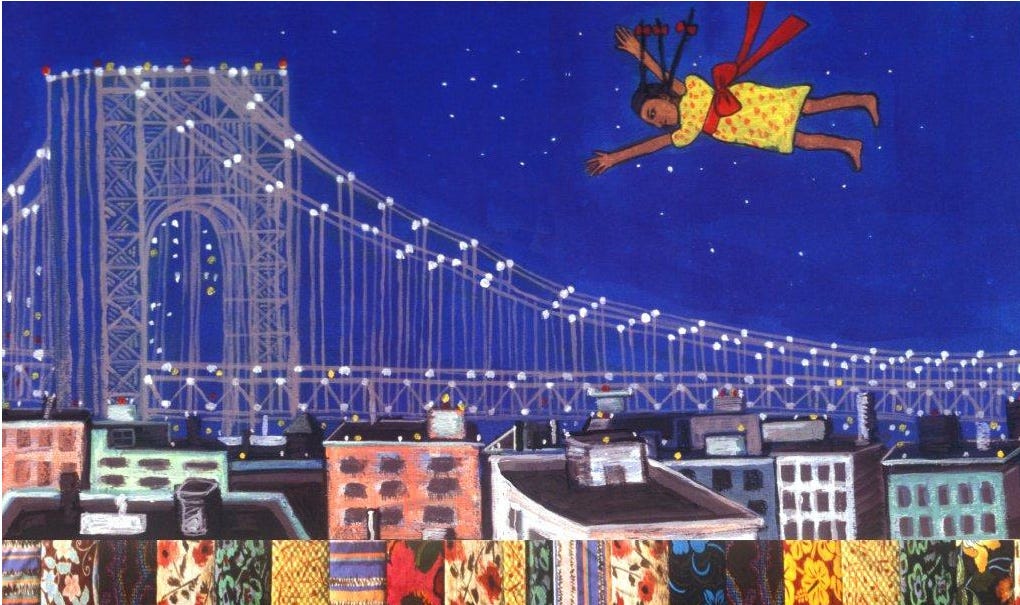Writer's Lab: Food, Ancestors, and Storytelling Magic
Time to Play: In this week's Writer’s Lab assignment, we begin to tie it all together. Experiment with narrative voice, memory, and imagination to shape your story.
Welcome to all the new folks in the Storybelly Writer’s Lab this week! Subscribing members: be sure to visit the Introductions and introduce yourself to the Lab (aka Lab Coat) community and see who else is here. Lab Subscribers get access the Lab Chat where we share our writing and support each other, as well as all previous and future Writer’s Lab lessons and assignments. Questions? Drop them in the comments and they will be answered promptly by me or by our Lab Coat Ops Guru, Zach.
Two additional notes this week:
We’re getting into longer-posts territory with Lab Posts starting this week. If the newsletter gets truncated on your phone or on email, you can click through at the bottom (where you’ll find a message to do just that) to come to the web and finish reading it — photos will be bigger and better on the web anyway, and if you’re a claustrophobe, like I am, you’ll audibly sigh to have so much more room.
We have been getting to know one another and doing introductory exercises this first month in the Lab. We’ll be moving toward more integrated assignments soon. Watch for a post in early April that sets us up on a quarter system for writing about our lives in ways that give us lots to think about and explore. Today, in a looser exploration (the way all Lab posts have been so far), let’s play with first chapters.
In this assignment, we’re going to explore Firsts, Food, and Ancient Ones. All in one chapter, paragraph, poem, essay, list, or vignette; Writer’s Choice as to what form the assignment takes. I’m going to show up in the Chat every day to see how you’re doing, and to assess what might need massaging as we go through the week. I am also doing the assignment (ulp!), so look for my work in the Chat as well.
Also, in anticipation of the syllabus for an official Lab Quarter coming up on April 2, let’s say that this first chapter (paragraph, etc) will be something we work on for the next two weeks. I’ll write more about this in next week’s Writer’s Lab, and we can share snippets of what we’re coming up with in the Chat as well. Experiment! That’s what the Lab is for. Pull out yer Erlenmeyer flask and get ready to fill, mix, heat, cool, incubate, filter, store, and share. Ahem.
Some food for thought:
Look at that first grader (way) above. CUTE! Ready! Prepared with new red lunchbox, new red sneakers, new, confident stance (balancing on that beam), new haircut, new everything, to meet his new first day in a new grade with a new… you get the idea. I want you to think of a FIRST.
What ARE Firsts, exactly? They can be fluid — not necessarily a thing, or event, maybe more a realization, or maybe something in general that’s happening, like the idea of First Grade for the First Grader above.
So far we’ve talked about first lines (here, if you missed it), and authentic narrative voice (at the same link), focus sentences (and finding focus), massaging memory in writing stories, and writing canons, among other topics, including the power of listening and how writing about food can present so many opportunities to tell stories.
None of those things really appears much in We Like Kindergarten, written by Clara Cassidy, art by Eloise Wilkin, a book about “the time that” Carol went off to kindergarten, but I present it as a way to look at very simple storytelling (I was going to say “bland” but I know this is a Little Golden Book from 1965 which was an entirely different time-and-place and it was meant for the very young, in the most straightforward way, and I can appreciate it for what it is and I love Golden Books).
I read We Like Kindergarten almost as a calming device (hahahaha) to the cute kid above before he started kindergarten, a year before that photo was taken, a time when he stood at the end of our driveway, with some trepidation, to wait for the big yellow bus that would whisk him off into another world. Now he spends part of his days trying to keep his cool when the Storybelly content creator misses her deadlines, but I digress. (I mean… here we are, on the appointed day, a Wednesday, it may be close of business, but we’re here! Love you! Mwah!")
What I want you to do, Lab Coats, is to consider this Little Golden Book that’s about a first. Here’s the lead, the opening line:
My name is Carol. I am going to kindergarten. I go to kindergarten every day.
You can listen to this book at YouTube and follow the page turns here.
What to notice, when you read this book:
Notice the FIRST and how it is presented throughout.
Notice the CIRCLE in the way the book is written. (beginning/middle/end)
Notice the way DETAIL is handled, a declarative sentence followed by examples, over and over, through the book (see? calming device…)
Notice the use of REPETITION, full sentence repetition. (also comforting)
Notice in the ART that Eloise Wilkin has painted a racially integrated classroom at a time (1965) when many schools were not integrated. (We could dedicate an entire Lab Post to this and other details about We Like Kindergarten, I know, but let’s stick to the assignment for now.)
Then, compare We Like Kindergarten to another picturebook (1991) about “the time that,” with a very different lead or opening line:
I will always remember when the stars fell down around me and lifted me up above the George Washington bridge.
This is the first page of Tar Beach by Faith Ringgold. (The link is to Faith reading her book, on YouTube. Rest in peace and power, Faith Ringgold. We are lucky to have known you, and what a legacy you leave.)
What I want you to notice here, when you read Tar Beach, is everything about We Like Kindergarten, you might make a list of things you notice, plus, for our purposes:
Notice the FIRST and how it is presented throughout the story. (same #1 as WLK, but a totally different list, right?)
Notice the FOOD and how it is folded into the story. How does it help tell the story?
Notice the ANCIENT ONES and their place in the story. How do they enrich the story?
What else do you notice?
And now, to THE ASSIGNMENT:







